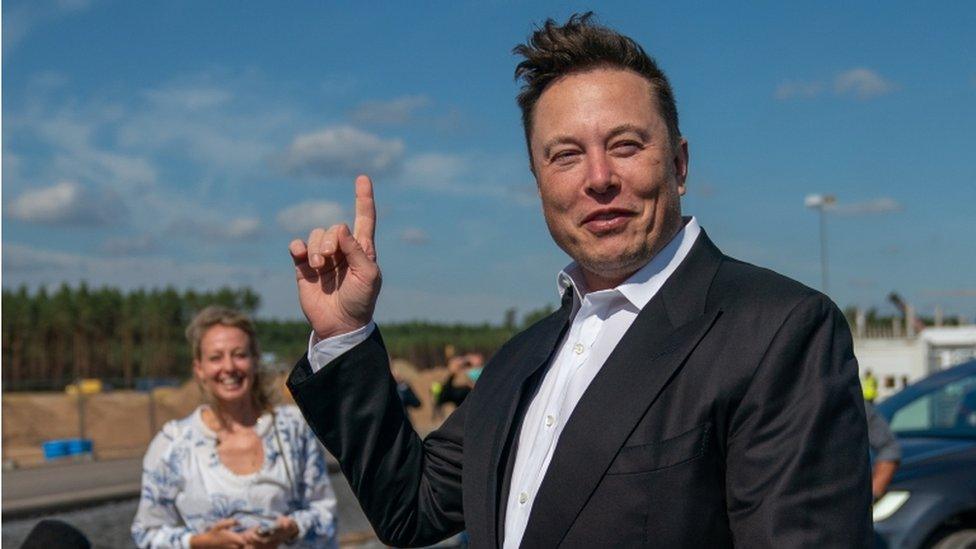How Tesla generated billions for Scottish stock-pickers
- Published
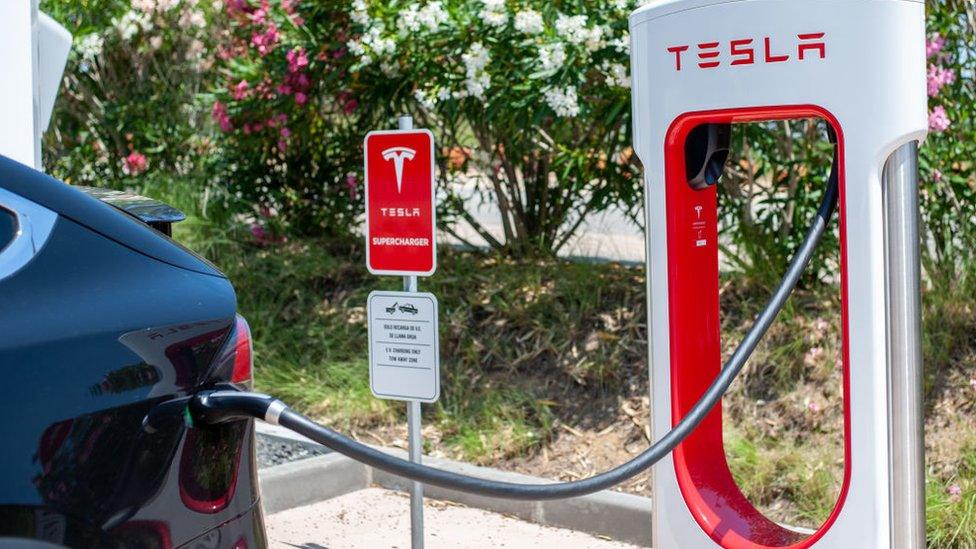
Dubbed by Forbes magazine "the world's best stock-picking firm", an investment in Tesla has driven a low-key Edinburgh partnership to staggering profits last year
Just one fund managed by Baillie Gifford emerged as Scotland's biggest company by valuation, and that was after having to offload Tesla shares because they were becoming too valuable
Its approach to technology is to look for smart, disruptive leaders with ideas that harness technology for a purpose. Investment managers are then given the freedom to wait patiently - and to give some of their winnings to Scottish football
Tesla last year made half a million new cars. That means the pioneer of electric vehicles is a relatively small auto manufacturer, and only half the scale it intended to be by now.
Yet its stock price says it's the most valuable auto maker on the planet, worth more than $800bn(£580bn).
That has made its boss, Elon Musk, the world's richest man, owning 21% of the stock. At the start of last year, wealth watchers say he was worth a mere $27bn. By year's end, it was more like $150bn.
He is the number one poster boy for entrepreneurs. Not only is he minted, but he's controversial, unpredictable, and a stand-out visionary who makes the coolest products - batteries and solar panels to tackle global warming, while his space rockets reverse launch into their own parking spaces.
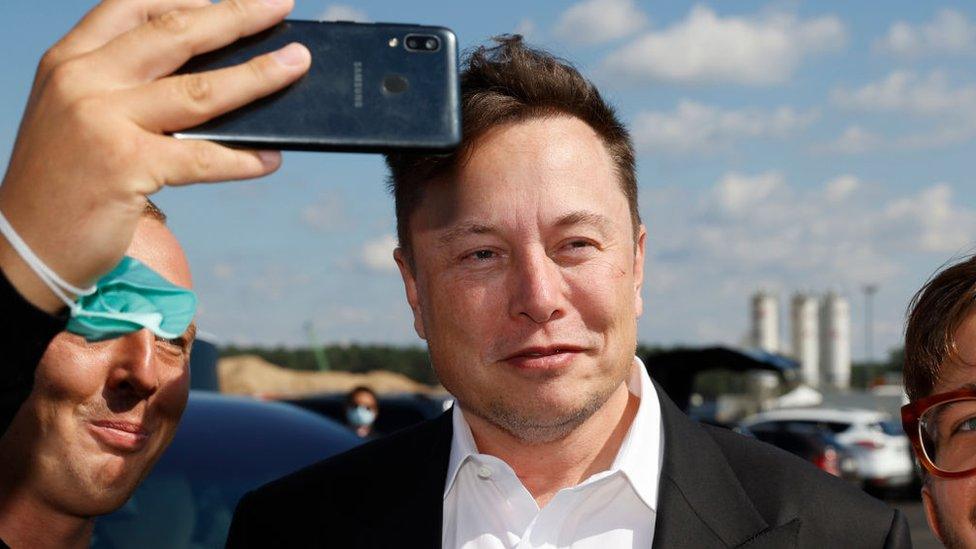
Elon Musk is seen as the number one poster boy for entrepreneurs
That ought to mean the stock pickers who backed him and Tesla get some kudos too, and gobsmacking profits for their investors. So which is the next biggest owner of Tesla stock?
You would find it at the foot of Calton Hill in Edinburgh, next to a large building site, a multiplex cinema and the capital's John Lewis store. (It happens to be on a site earmarked nearly 50 years ago for the headquarters of BBC Scotland, but that remained in Glasgow instead.)
You might not notice it. Baillie Gifford can seem low key to capital residents. It's not a big consumer brand. Owned by its 47 partners, it gets by with a modest profile. Founded as a law firm in 1907, it's canny and long-term.
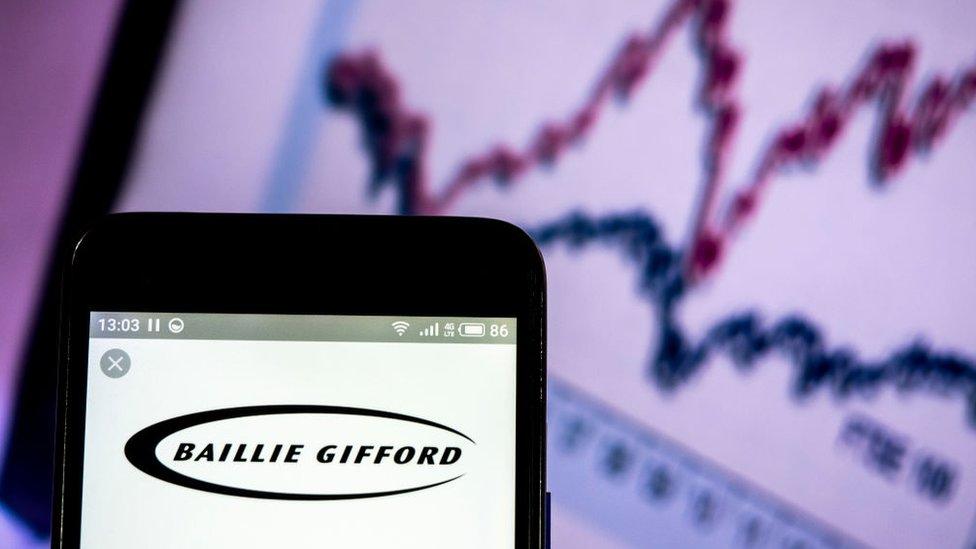
But as an investment partnership, it's now huge and getting a lot bigger. At the end of last month, it had £326bn in funds under management. Forbes magazine last month rated it "the world's best stock-picking firm".
The partnership's profit on holdings of Tesla shares last year alone was a staggering $29.5bn (£21.2bn).
As the share price rocketed by more than 700% over the year, it had to sell some stock. The rules of various funds, including the flagship Scottish Mortgage Investment Trust, require them to limit investors' exposure to a single stock within the portfolio.
So it made a profit of nearly $15bn (£10.8bn) on shares it had to sell, and the rest was paper profit on the equity it retained. By the end of last month, that stake was worth $19.5bn (£14bn).
Much of the stock-picking credit goes to managers of the Scottish Mortgage fund, James Anderson and Tom Slater. They are among 80 or so investment managers within a Baillie Gifford staff of 1,300, most of them in two Edinburgh offices, soon to be merged at the new office complex going up at Haymarket.
If the former manager's name sounds familiar as someone with cash to splash, then yes, that's the same James Anderson who poured £3.5m into Scottish football last year, without even being much of a football fan. Clubs are important for local communities at a tough time, and particularly for smaller towns, he explained.
The duo began investing in Tesla only eight years ago. By last year, they owned nearly 8% of it. After last year's sales, that is now below 3%. When they started investing, a share traded at $6. By close of trading on Wednesday, it was $846.
The intention is not to back technology firms, but to find those that are "technology-enabled" - using tech to do something, and companies whose visionary leaders have ideas for disrupting markets.
Other companies backed include online retailers Amazon and Alibaba, Chinese electric vehicle maker NIO, genetic sequencer Illumina and Chinese conglomerate Tencent. The funds realised by selling Tesla shares have been ploughed into promising younger ventures, such as Swedish green battery-maker Northvolt.
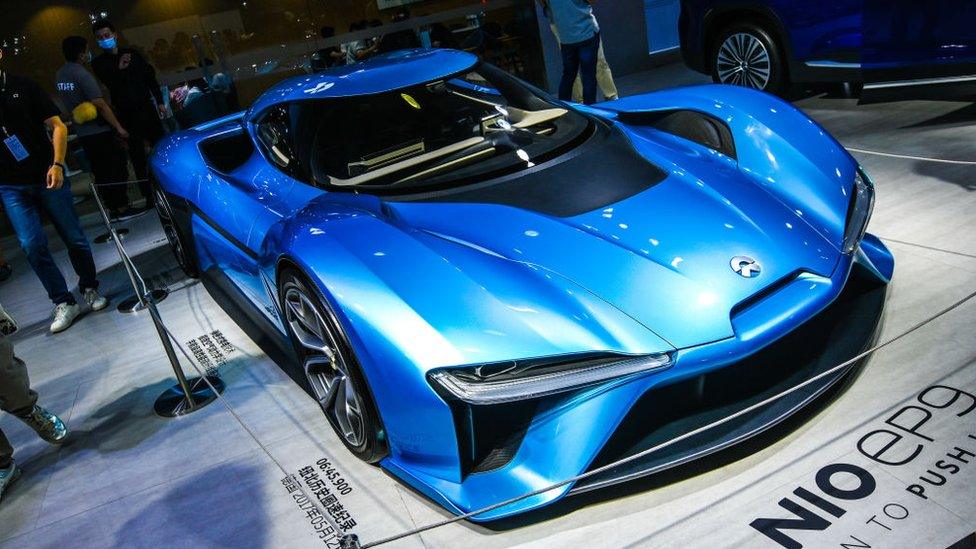
Chinese electric vehicle maker NIO is among companies which have been backed
The company emphasises that the profits are not made by Baillie Gifford itself, but by its clients - those who invest in its funds. The investment partnership makes it money out of managing those funds, while partners may also have their own personal stakes in the funds.
Scottish Mortgage was the first fund launched by Baillie & Gifford in 1908. It now has little focus on Scotland and nothing to do with mortgages.
It is listed on the London Stock Exchange, and as the real and paper profit on Tesla stock grew by $5.5 billion (£4bn) during last year, leaving a stake worth $2.2bn (£1.6bn), the Investment Trust share price grew so much that it emerged as the biggest riser on the FTSE100 index, and, by valuation, Scotland's biggest company.
'Ultimate objective'
In November, as Scottish Mortgage had to offload Tesla stock, James Anderson voiced the approach of the company as one that invests with patience and a purpose: "We are privileged to have been Tesla's largest external shareholder over a critical period for the development of the company.
"We are immensely grateful for the extraordinary efforts and achievements of Tesla in driving forward a transportation and energy revolution in the face of persistent scepticism and often downright hostility. Without Tesla's efforts the possibility of averting climate disaster would have been significantly reduced.
"In our view the underlying purpose of providing equity capital at scale is to try to assist in mitigating, and hopefully solving, the most serious problems the world faces. For sure, we and our clients are extremely happy with the progress of the share price but we see this as but a reflection of the ultimate objective."
Being a partnership without external shareholders, there's no pressure to deliver quarterly returns. And with the returns they get over time, investors in their funds are unlikely to be anxious that Tesla's earnings for the fourth quarter of 2020, announced on Wednesday night, came in below market expectations.
It seems that the move down a gear into the mid-market of electric cars will mean growth in vehicle production each year of around 50%, and more than that this year, but that comes at the price of lower margins.
So in after-market trading, the stock price was down by 5%. Baillie Gifford clients can afford that kind of paper loss.
- Published28 January 2021
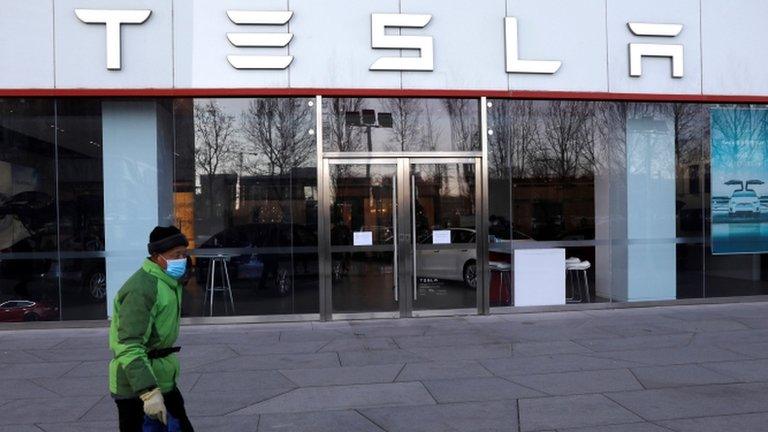
- Published7 January 2021
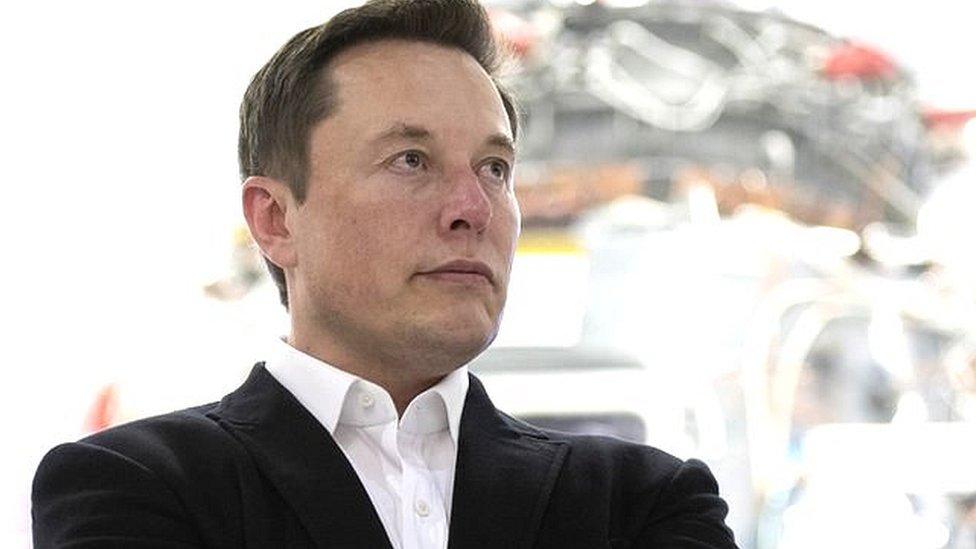
- Published6 January 2021
